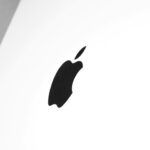Can a New Major Player Emerge in the PC Operating System Market?

Since the late 1970s, personal computers have rapidly gained acceptance in consumer markets. Today, they have reached a level of ubiquity at par with other consumer electronics items, such as radio and TV, in the industrialized world.
Most of these personal computers run on either a Microsoft Windows-based operating system or a Macintosh operating system. Both Windows and Macintosh operating systems are proprietary and owned by two large information technology corporations, Microsoft and Apple, respectively.
Microsoft’s operating system market share fluctuates between 87-90%, whereas Macintosh controls 7-9%. Together, they account for more than 95% of the operating system market share globally, and this has been the case for many years. In other words, the market has matured and consolidated in such a way that these two big players would likely maintain a firm grip over the PC market in the future unless there is a Dollar and/or Euro crisis.
There are several reasons for this consolidation and dominance of market share between these two corporations. The principal founders of both corporations, Bill Gates and Steve Jobs, respectively, were visionaries. They had a unique combination of talents in terms of technological ability, entrepreneurial acumen, and recognition of the future potential of personal computers.
By taking a strong initiative and recruiting the best and brightest for their companies during the early era of personal computers in the mid-1970s ′s, these two visionaries garnered large market share and, despite frequent setbacks, maintained their early lead for decades to come.
Other mass consumer-oriented operating systems such as Red Hat, which is based on the Linux operating system, have not been able to offer something which would capture the public imagination to such a degree that people would gravitate away from Microsoft and Apple and start using another operating system.
Despite frequent problems such as operating system instability, virus attacks, and other technical problems, Windows (and Macintosh) has been able to offer an attractive operating system that satisfies mass consumer needs.







